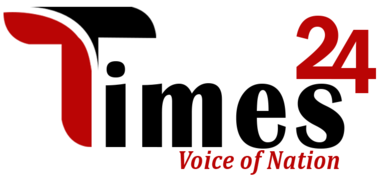India’s economy is recovering but there are several macroeconomic issues that need urgent attention. One of them is the persistently high levels of retail inflation, especially when the country has officially entered a recession.
The retail inflation in October jumped to 7.61 per cent, the highest in the last six years. In September, it stood at 7.27 per cent. And in October 2019, retail inflation was 4.62 per cent.
October was the second straight month when inflation remained above 7 per cent, well above the Reserve Bank of India’s acceptable target of 2-6 per cent. It may be noted that retail inflation has remained above RBI’s target for over seven months now. A fresh Reuters poll expects inflation to remain above 7 per cent in November.
While elevated inflation is a sign of higher economic activity, it could have a negative impact on purchasing demand besides limiting the central bank’s ability to act on key rates.
How high inflation affects you?
Retail inflation is based on the Consumer Price Index (CPI), which tracks changes in the retail price of goods and services purchased on a daily basis by households. Simply put, retail inflation is a measure of what households pay for everyday items including food, fuel, clothing and electricity.
While economists expect headline inflation to come down in the coming months, reasonable doubt remains with a sharp rise in prices of essential commodities like vegetables, fruits, meats and other food items. Energy prices – electricity and fuel — also remain elevated.
As per the official data for October, the combined rural and urban food price inflation rose sharply by 11.07 per cent. Food inflation remains the biggest concern for poorer households as a majority of them have faced income loss during the pandemic.
It is worth mentioning that vegetable prices surged over 22.5 per cent in October after increasing over 20 per cent in September. Price of pulses, fish and meat also increased over 18 per cent. This means consumers are now paying more towards food items, which is the main source of expenditure for poor and middle-income groups.
Moving on to the other major categories. Fuel and electricity inflation rose modestly by over two per cent in both October and September, while costs towards healthcare climbed over five per cent. Core inflation, which excludes volatile items like food and energy, also remains high. October’s core inflation was in the range of 5.5 to 5.8 per cent.
Economic drag, lower savings
Experts explain that persistently high levels of inflation could drag economic growth as rising prices for items make savings harder, forcing individuals to either cut down on expenses or find ways to increase income. But in a period of recession, when employment opportunities are limited, the prospect of increasing income is tricky.
Mumbai-based economic think-tank CMIE said employment contracted for the second consecutive month in November. “The recovery in employment, from the steep fall during the April lockdown was smart initially but, it slowed down well before the recovery was completed,” CMIE said in a recent report.
Since employment opportunities are limited and many from the services sector are living on lower incomes, the high costs for food, energy and other essential goods and services could become a major threat for long-term growth.
Lower household savings could create a demand void for non-food commodities, resulting in lower business in key sectors like real estate and consumer goods.
Double whammy
Like many other countries, India is facing a peculiar economic problem — inflation during a period of recession — due to the pandemic. During a recession, authorities are focused on loosening money supply while it is tightened to control inflation — a reason why the RBI has neither been able to increase the key interest rates nor decrease them.
The situation is such that a larger share of the responsibility to deal with the recession now lies with the government. Although it has introduced three dedicated stimulus packages, several economists believe that it should be ready to loosen its purse strings further in case inflation keeps rising during the period of recession.
A Bloomberg report recently said that the government is considering recommending a looser inflation target for the central bank, allowing it to focus more on economic growth despite growing price pressure.
But former RBI Governor Viral Acharya told news agency PTI that revising up inflation bands of the central bank will hurt the poor. He said the current target of four per cent (+/-2) as reasonable.
Explaining that revising the inflation target upward will severely impact the poor, Acharya said, “Those pitching for a 6 per cent inflation should get into poor man’s shoes for a day to see how price rise pinches and finally impacts his consumption.”
Acharya went on to add that the country has to devise ways of pushing up growth in a structural manner and not by “pump-priming” measures like easy credit and liquidity.
“I think India has got to find a way to driving up growth without allowing inflation to run away to such high levels. India has to invest in growth structurally, not through this pump-priming of the economy through easy credit and easy liquidity conditions.”
Experts say that India’s recovery is going through a tricky phase as authorities would have to deal with both recession and rising inflation.
One of the measures that could come in handy is to reduce spending on projects that are not immediately required as that money can be diverted towards economic recovery. Another key measure that is required to tackle the situation is generating employment, as it would help poorer households increase income levels.
As the situation stands, India’s economy does seem to be recovering quickly on the back of higher spending, but it may be difficult to sustain if inflation rises in a recessionary environment.






